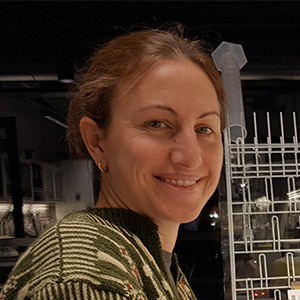
- Project belongs to the Topic:
- Role of Complement in Human Disease
Description
STATEMENT (STroke risk prediction in ATherosclerosis measuring circulating complEMENT system proteins) is an ERA-NET NEURON JOINT TRANSNATIONAL RESEARCH PROJECT on translational biomarkers in brain disorders. The consortium is co-ordinated from Milan (senior researcher Stefano Fumagalli). Five partners participate (two in Italy, one in France, one in Romaniia and one in Norway).
Stroke is a major public health burden, causing worldwide 5.5 annually deaths and being responsible for an overwhelming percentage of patients living with disability. The latest treatment and risk factor management advances improved patient survival after stroke, but pose a serious problem in the increasing number of people living with permanent disability, cognitive impairment and productivity loss. Thus, improvements in primary and secondary prevention to truly reduce the global impact of stroke are critically needed. Available diagnostic procedures cannot detect vulnerable atherosclerotic plaques bearing the risk of stroke, making the clinical detection of vulnerable atherosclerotic plaques a priority. The central hypothesis of STATEMENT is that the complement system through its inflammatory reactions actively participates in the erosion of the atherosclerotic plaque and that its protein levels in blood can be markers of cardiovascular and stroke risk.
In STATEMENT we envisage to validate the use of complement proteins and products as circulating biomarkers of plaque instability, with a clear prognostic value for stroke occurrence. This will offer new tools for patient diagnosis, stratification and monitoring based on the sensitive detection of circulating levels of complement proteins informing on plaque morphological evolution. This will be of important implications to reveal disease mechanisms, predict plaque disruption, prevent stroke and improve treatment and reduce disease burden for those who still will suffer from stroke.
In addition to this main clinical part of the program, an experimental mice study of stroke will be performed to test if the dual-blockade of complement (C3) and the TLR system (CD14) can reduce the infarct size and improve the prognosis in single and double knock-out mice.





